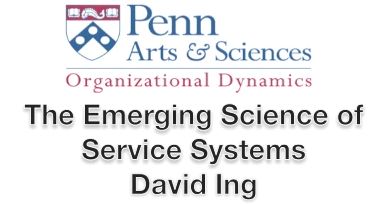Earlier this year during the Russell Ackoff memorial, I reconnected with some members of the systems community in Philadelphia. This event was taken as an opportunity to reinvigorate the systems community, in honour of Russ. With his colleagues and former students scattered around the world, an Internet-based presence seemed appropriate.
 We’ve now formally launched SysCOI.com — the Systems Community of Inquiry. It is intended as open, worldwide network of individuals interested in systems thinking, the systems sciences and/or systems practice.
We’ve now formally launched SysCOI.com — the Systems Community of Inquiry. It is intended as open, worldwide network of individuals interested in systems thinking, the systems sciences and/or systems practice.
Inquiry is “an activity which produces knowledge” (Churchman, 1971). The shared foundations and perspective in systems suggests more than a community of interest, but less than a community of practice (Wenger, 1999). The interactions as a community aim to (i) foster interactions contributing knowledge and wisdom to the online world, and (ii) cultivate social relationships between systemicists.
The web interface follows an activity stream style of interaction, as has become popular with Facebook. In the interest of completely open communications, content posted on SysCOI.com is visible anywhere the Internet is accessible, and actively crawled by search engines. There is no ambiguity about privacy with this online community: all communications are public. The feature of choosing your “friends” on this web site enables following a smaller set of contributors, as the size of the social network increases. Discussions with longer-running threads can be organized with groups and forums provided on the site.
Pre-announcement of the new web site occurred in April at the Systems Research Conversation at Pernegg, sponsored by the IFSR. … Read more (in a new tab)



